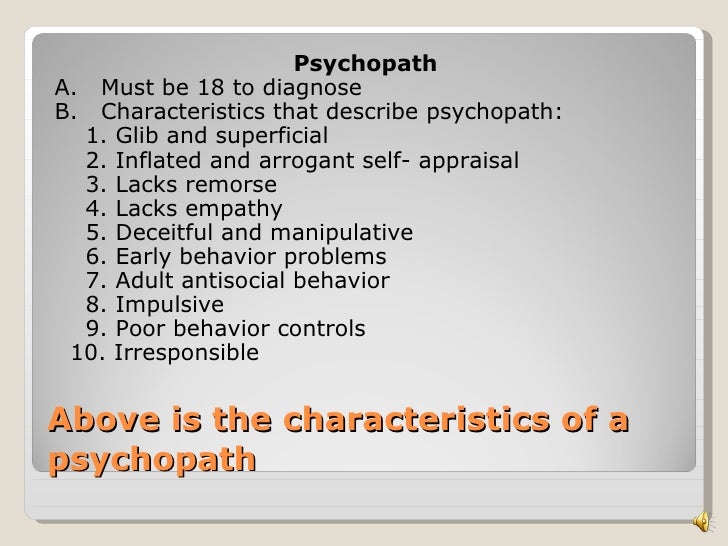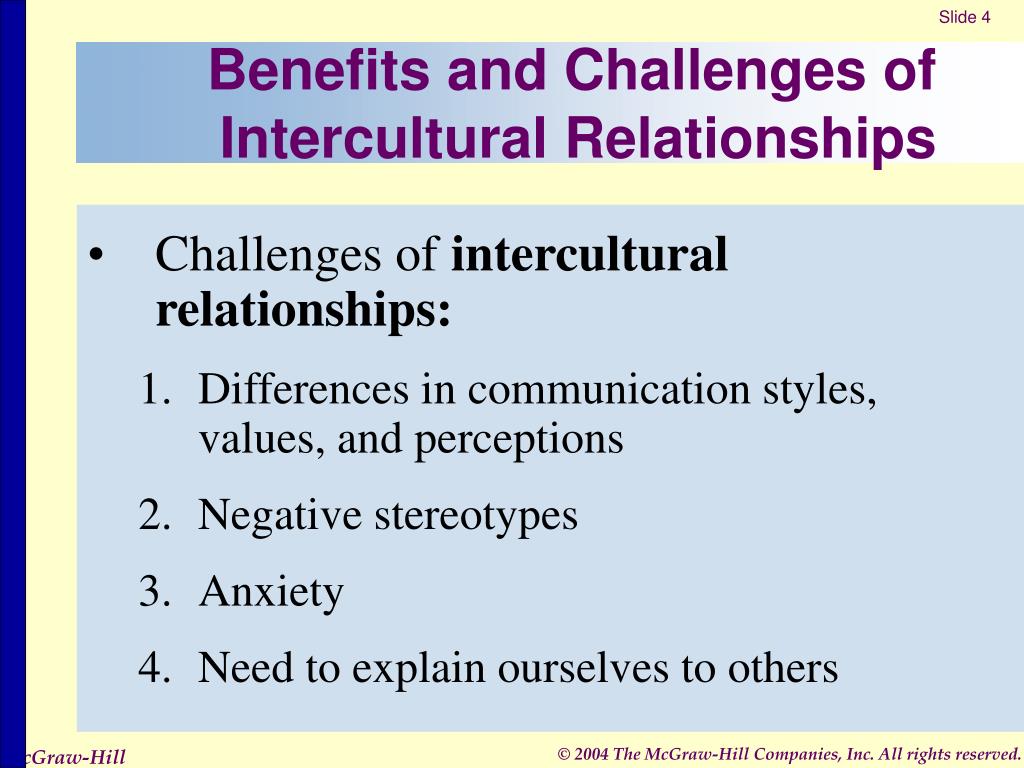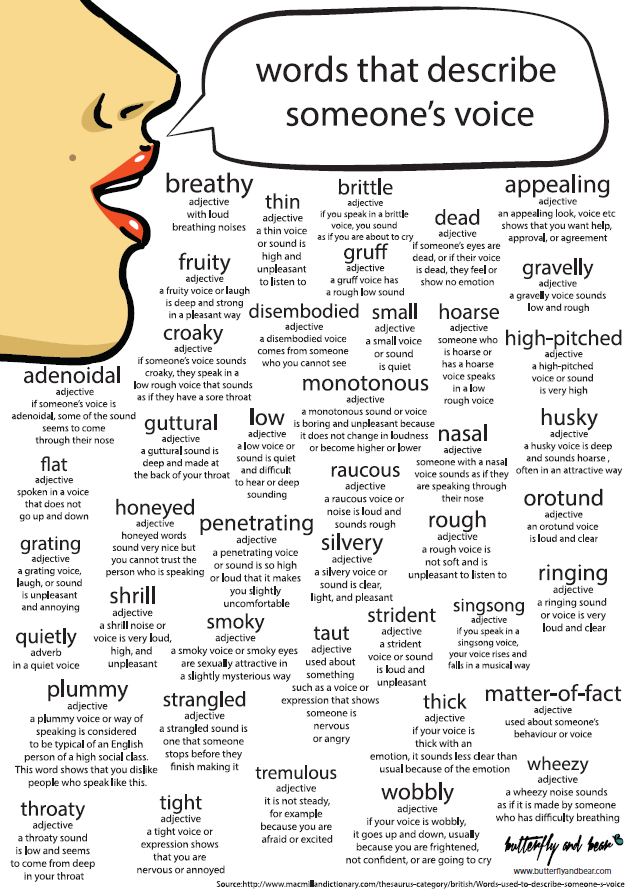How to stop being scared of the dentist
7 Simple Tricks for Overcoming Dental Anxiety Forever
by Dr. H. Brett Friedman | May 13, 2019 | Dental Advice
At Union Dental Center, our goal is to help every single patient feel completely relaxed, at ease, and comfortable. But with over 80% of Americans suffering from some level of dental anxiety, we have our work cut out for ourselves. Know that you’re not alone and we have helped thousands of people overcome their fear with a variety of techniques.
It’s a challenge we happily accept, and we’re dedicated to changing our patients’ perception of what it means to go to the dentist.
How dental anxiety affects your health
When something scares you, what do you do? Avoid it at all costs!
This is true for those suffering from dental phobia, too. An estimated 9 to 15% of Americans avoid seeing the dentist altogether because of anxiety or fear (that’s 30 to 40 million people!).
Going to the dentist, getting preventive care, and addressing issues is critical to your dental and overall health. Letting your dental phobia hold you back you from going to the dentist or getting recommended treatments can lead to negative outcomes like…
- Stained and discolored teeth
- Chipped, breaking, and cracked teeth
- Gum disease
- Gum recession
- Cavities and tooth decay
- Mouth pain
- Tooth loss
Not to mention all the symptoms and risk factors for various other dental-related issues (like TMJ, sleep apnea, and even oral cancer) that will go undetected or untreated.
Going to the dentist is only for your benefit. Keeping this fact top of mind is important for your journey in overcoming your dental fears.
What are you afraid of? Recognizing your fear is the first step
Before you can overcome your dental phobia, you need to acknowledge and understand why it’s there in the first place.
After some reflection, you may discover that there’s just one thing or a combination of factors to blame.
1.
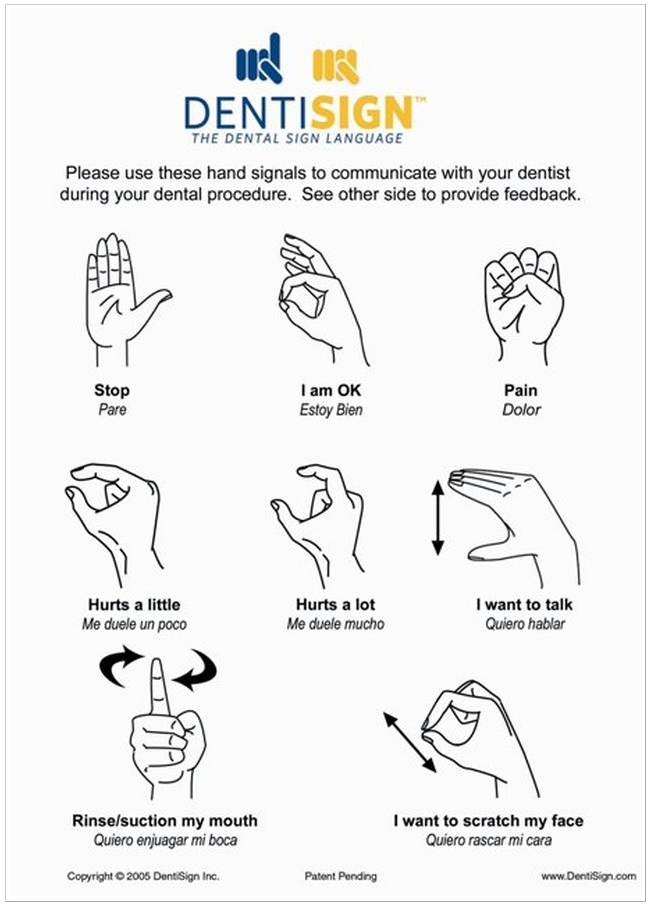 Pain
PainFor many, there’s an assumption that dental care is inherently painful. The thought of pain would cause anyone to be fearful! Thankfully, modern-day dental techniques and treatments are far less invasive and much more gentle and comfortable than in the past. Not to mention, a good dentist will do everything they can to ensure your visit doesn’t cause pain.
2. Loss of control & fear of the unknown
Sitting back in a dental chair makes some people nervous and claustrophobic. Others have trouble getting comfortable because they’re not sure what’s about to happen. Not knowing exactly what to expect and feeling out of control can be unnerving.
Dentist offices today take these fears into consideration and offer solutions. From amenities like eye masks, blankets, and headphones to help you relax to detailed explanations of exactly what’s going on during your treatment. We can use a combination of things to help your visit be as comfortable as possible.
3.
 Embarrassment about dental health
Embarrassment about dental health
If a fear of the dentist has kept you from the dentist for many years, chances are you may be dealing with some bigger dental issues. Even if your teeth appear to be in good health, some people are worried they’ll “get in trouble” for taking so long to make an appointment, not flossing every day, or showing any signs of non-ideal maintenance .
Keep in mind though that the longer you put off going to the dentist, its likely the more embarrassed about your teeth you’ll be. Remember: we will never judge or lecture you about your past dental health choices–we are only here to help you achieve your optimal oral health.
4. Bad experience in the past
We’re sad to say it, but some dentists don’t take the time and effort to provide the best possible experience for patients. If you’ve ever been to a dentist like this, you may feel scarred from the memory. Whether it was being pressured into a treatment you didn’t want or not feeling welcome, these kind of experiences can make you distrustful.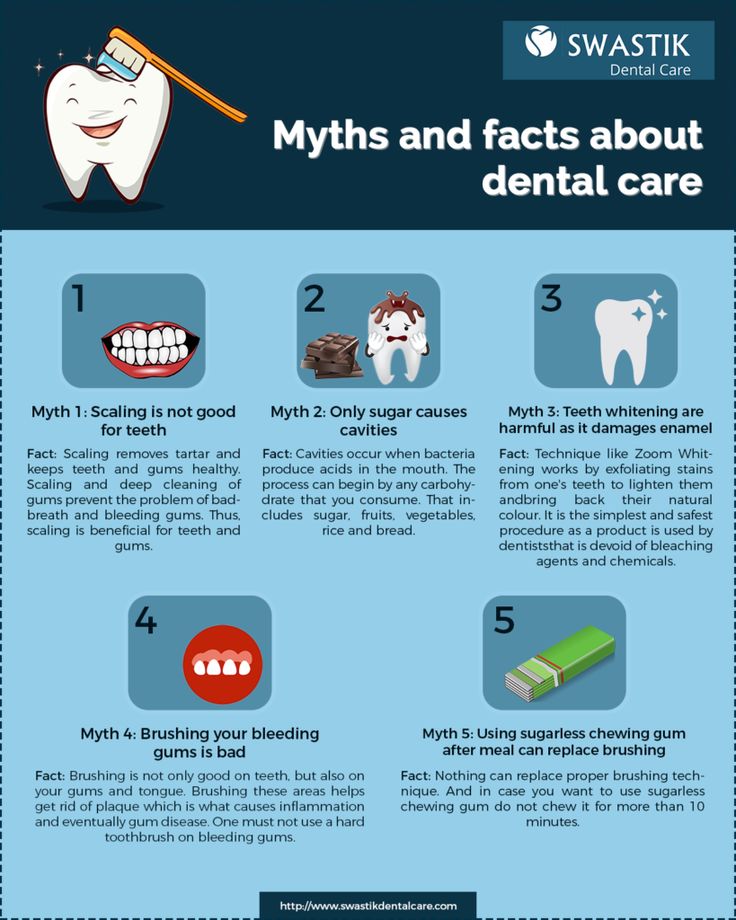
You deserve better.
The good news is, there IS better out there. The trick is to find and work with an honest and trustworthy dentist who will treat you with respect and compassion. We will start with non-invasive, easy appointments so that we build a relationship based on trust and respect for your feelings.
6 more tricks for overcoming your dental anxiety
Now that you’ve identified the root of your fears, it’s time to take steps to move past them. Here are some tips for doing just that.
1. Find the right dentist
The right dentist can make all the difference. You’ll feel more comfortable and confident about the care you’re receiving. Look for a dentist who offers…
- A friendly, caring staff
- Great reviews from current patients
- Simple answers to all your questions
- A relaxing and comfortable office atmosphere
- Personalized and high-tech dental care and treatments
2. Use relaxation techniques and medications
Ahead of your appointment, take some time to get in the right mindset.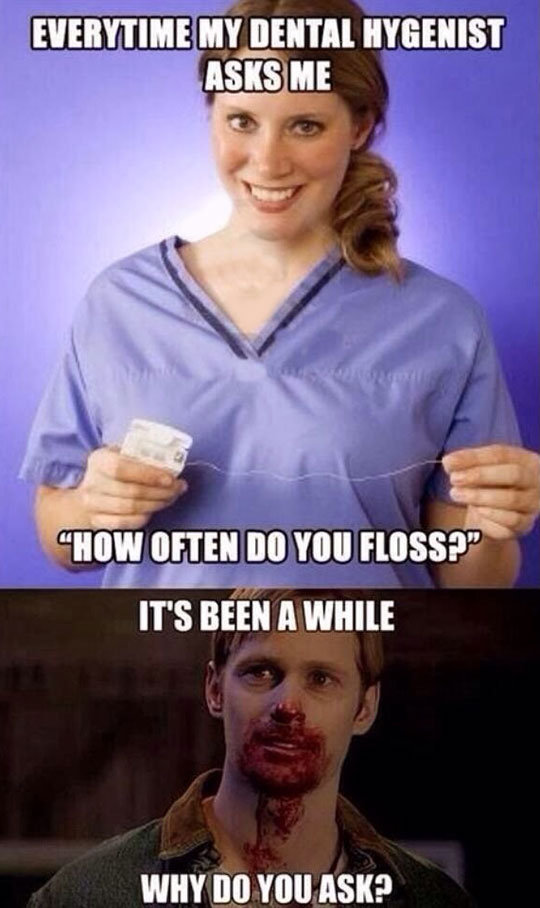 Many people find it helpful to do stretches, meditation, or deep controlled breathing.
Many people find it helpful to do stretches, meditation, or deep controlled breathing.
If you suffer from extreme anxiety, you may want to call up your dentist and ask about what type of sedation techniques may be appropriate to help you relax further.
We may decide to use nitrous oxide (laughing gas) and/or sedative medications to help reduce your anxiety to a minimum. We can discuss these possibilities at your consultation and come up with a customized regimen to meet your specific needs. These medications are extremely safe and effective for managing anxiety.
3. Bring a friend
Ask a friend or family member to join you during your appointment. Whether you want the person to wait out on the lobby during your appointment or in the room with you, having a supportive person nearby can help you feel safer and more relaxed.
4. Arrive early
Rushing to get to your appointment on time can cause you to get worked up. Don’t put unnecessary stress on the experience. Plan to arrive extra early to give yourself enough time to take it slow.
Plan to arrive extra early to give yourself enough time to take it slow.
If it will help, arrive early enough to enjoy a few extra minutes in the lobby, talking to the front desk staff, asking questions, or just relaxing.
5. Let your dentist know!
While it’s unfortunate that dental anxiety is so common, it does means that your dentist has A LOT of experience helping people just like you. Don’t keep your fears bottled up — be sure to let your dentist and dental team know that you feel nervous.
Your dentist wants to give you the personalized care and special attention you need to help you have a relaxed and enjoyable experience.
6. Ask lots of questions
Throughout your appointment, be sure to voice any concerns, questions, or discomfort. Your dental team is there to help. Want to know about a specific instrument or treatment? Ask! Are you beginning to feel anxious and need a moment before continuing treatment? Let your dentist know.
A good dental team will gladly accommodate your requests, explaining what a sensation might be like and ensuring you’re comfortable the entire time.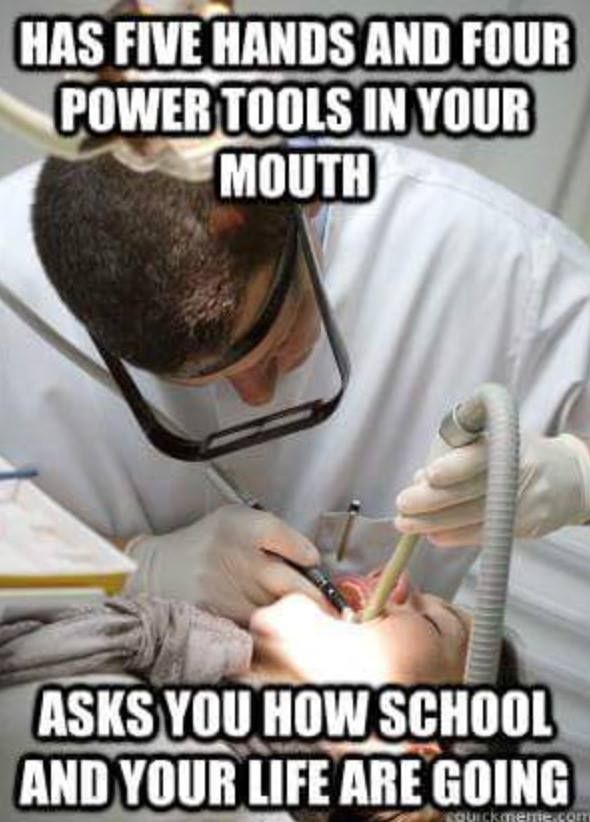
We’re here to help
At Union Dental Center, we understand that for many, visiting a new dentist can be stressful. But here at our Havre de’ Grace dentist office, we do things differently.
If you suffer from dental anxiety, we’re here to help. Your appointment will be catered to your needs, ensuring you feel comfortable and relaxed throughout the appointment.
You’ll be informed and educated along the way and have plenty of time to ask questions and get the answers you need to feel confident.
Let us know what we can do to deliver the best possible experience.
Dr. Friedman earned his Doctorate of Dental Surgery from the University of Maryland, Baltimore College of Dental Surgery in 1996. For over 20 years, Dr. Friedman has been creating the smiles of his patients’ dreams. He believes that nothing should stand between you and a healthier smile.
How to Cope with Dentophobia
Oral health is widely regarded as one of the most important aspects of our overall health. However, perhaps just as prevalent is the fear of the dentist. This common fear can stem from a number of emotions related to worries over your oral health, as well as potential bad experiences you may have had at the dentist during your youth.
However, perhaps just as prevalent is the fear of the dentist. This common fear can stem from a number of emotions related to worries over your oral health, as well as potential bad experiences you may have had at the dentist during your youth.
But for some people, such fears can come in the form of dentophobia (also called odontophobia). Like other phobias, this is defined as an extreme or irrational fear to objects, situations, or people — in this case, dentophobia is the extreme fear of going to the dentist.
Given the importance of oral care to your overall health, a fear of the dentist shouldn’t hold you back from regular checkups and cleanings. Still, it’s not easy for everyone to just simply go to the dentist.
Here, we’ll discuss the potential underlying causes as well as treatments and coping mechanisms that can be a starting point for helping you conquer your fear of the dentist.
Fears and phobias are often discussed interchangeably, but these two states of mind have some marked differences between them.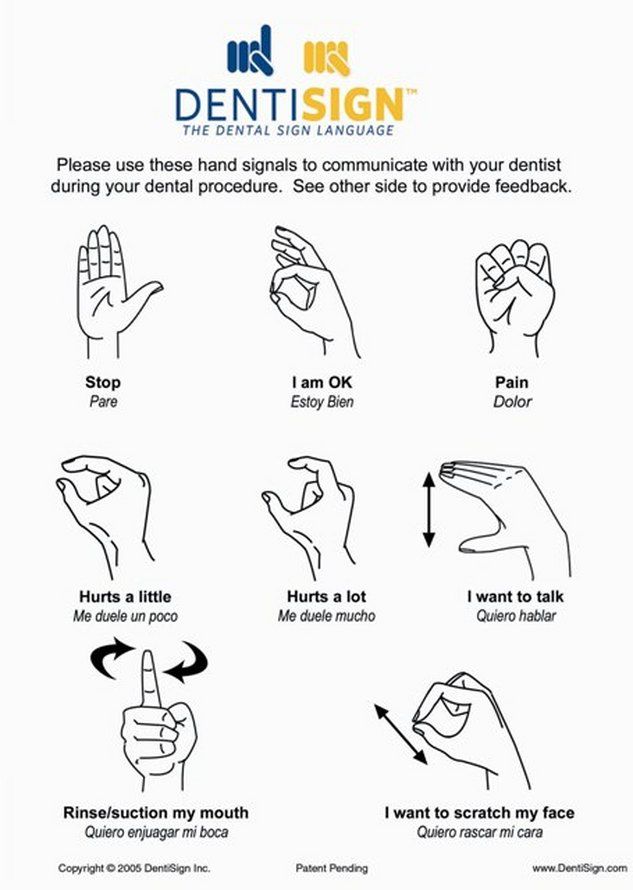 A fear can be a strong dislike that may cause avoidance, but it’s not necessarily something you might think about until the thing you fear presents itself.
A fear can be a strong dislike that may cause avoidance, but it’s not necessarily something you might think about until the thing you fear presents itself.
On the other hand, a phobia is a much stronger form of fear. Phobias are considered a type of anxiety disorder, and are known to cause extreme distress and avoidance — so much so, that these interfere with your daily life.
Another characteristic of a phobia is that it’s not something that will likely cause you harm in reality, but you can’t help feeling that it will.
When applied to the context of going to the dentist, being fearful could mean you dislike going and put off your appointments until necessary. You may dislike the feel and the sounds of the instruments used during cleanings and other procedures, but you put up with them anyway.
In comparison, dentophobia can present such a severe fear that you avoid the dentist altogether. Even the mere mention or thought of the dentist may cause anxiety. Nightmares and panic attacks may also occur.
The causes and treatment for a fear of the dentist and dentophobia may be similar. However, a legitimate phobia of the dentist can take more time and work to cope with.
A fear of the dentist is usually caused by negative past experiences. You may have been afraid of the dentist as a child, and these feelings stuck with you as you grew up.
Some people are also afraid of the noises of the tools dentists and dental hygienists use for teeth cleaning and exams, so thinking about these could bring about some fears, too.
By definition, a phobia is an extreme fear. This might also be tied to a negative experience in the past. Perhaps you experienced pain, discomfort, or a general lack of empathy at a dentist office, and this has created a significant aversion to seeing another dentist in the future. It’s estimated that 2.7 percent of men and 4.6 percent of women have dentophobia.
Aside from fears and phobias tied to past experiences, it’s also possible to experience fear of a dentist because of concerns you might have about your oral health. Perhaps you have a tooth ache or bleeding gums, or maybe you just haven’t been to the dentist in several months or years and are afraid of receiving bad news.
Perhaps you have a tooth ache or bleeding gums, or maybe you just haven’t been to the dentist in several months or years and are afraid of receiving bad news.
Any of these concerns could cause you to avoid going to the dentist.
Mild fears over seeing the dentist are best remedied by going to the dentist instead of avoiding it. In the case of significant dental work, you may ask to be sedated so you’re not awake during the procedure. While not common practice in all offices, you may be able to find a dentist who can accommodate your sedation wishes.
However, if you have a true phobia, the act of going to the dentist is much easier said than done. Like other phobias, dentophobia may be tied to an anxiety disorder, which may require a combination of therapies and medications.
Exposure therapy
Exposure therapy, a type of psychotherapy, is among the most effective solutions for dentophobia because it involves seeing the dentist on a more gradual basis.
You might start by making visits to the dentist’s office without actually sitting down for an exam. Then, you can gradually build on your visits with partial exams, X-rays, and cleanings until you’re comfortable to take on a full appointment.
Then, you can gradually build on your visits with partial exams, X-rays, and cleanings until you’re comfortable to take on a full appointment.
Medication
Medications won’t treat dentophobia by themselves. However, certain types of anti-anxiety medications may alleviate symptoms as you’re working through exposure therapy. These can also ease some of the more physical symptoms of your phobia, such as high blood pressure.
Whether you’re ready to face your fear full-on or you’re getting ready for exposure therapy to gradually see the dentist, the following tips can help you stay calm during your appointment:
- See the dentist at a less busy time of day, such as the morning hours. There will be fewer people, but also fewer tools making noises that could trigger your anxiety. Also, the later you see your dentist, the more time your anxieties will build up in anticipation.
- Bring noise-canceling headphones or ear buds with music to help you relax.
- Ask a friend or a loved one to accompany you during your appointment.

- Practice deep breathing and other meditation techniques to calm your nerves.
Above all else, know that it’s OK if you need a break at any point during your visit. It can be helpful to establish a “signal” with your dentist ahead of time so they know when to stop.
You can then either continue with your visit when you’re ready, or come back another day when you feel better.
Among the most important qualities of a dentist is the ability to understand your fears and aversions. You can ask your doctor or a loved one for a recommendation for a caring dentist. Another option is to call around and ask prospective offices if they specialize in working with patients who have fears or dentophobia.
Before you go in for an exam and cleaning, you may consider booking a consultation to determine whether the dentist exemplifies the type of understanding professional you need.
It’s important to be open about why you fear going to the dentist so they can be better able to put you at ease.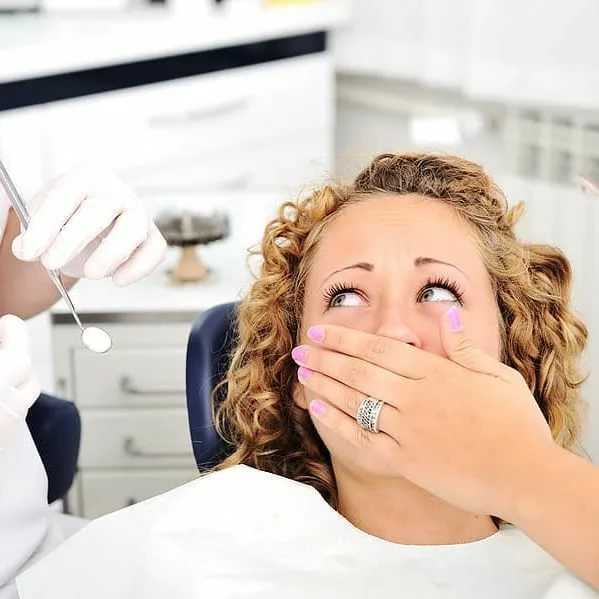 The right dentist will take your fears seriously while also being accommodating to your needs.
The right dentist will take your fears seriously while also being accommodating to your needs.
Your oral health is an important aspect of your overall well-being. Still, this fact alone may not be enough to convince someone to go to the dentist if they have an extreme fear or phobia. At the same time, continued avoidance will only make fear of the dentist even worse.
There are numerous strategies available to cope with dentophobia. It’s also important to alert your dentist so they can accommodate you. It will take time and effort, but it’s possible to progress to a point where your fears will no longer prevent you from getting the oral care you need.
How to stop being afraid of the dentist advice from experienced doctors
Fear of dentists and toothache is a fairly common problem. Even adults, at the thought of a visit to the dentist, panic and pull to the last, as a result, completely launching the oral cavity. There is a special term for this fear - dental phobia.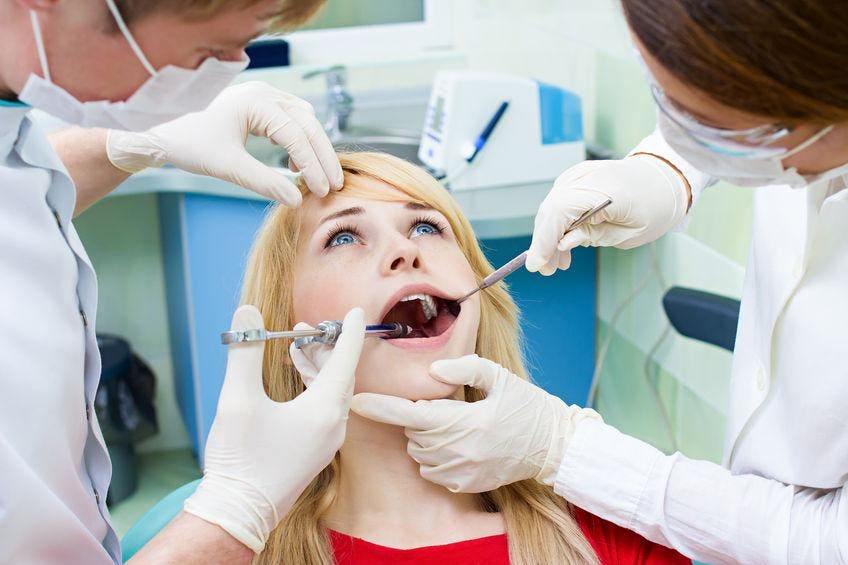 How to cope with this phenomenon and stop being afraid of the dentist, we will tell in the article.
How to cope with this phenomenon and stop being afraid of the dentist, we will tell in the article.
Reasons for fear of visiting the dentist
First of all, you need to understand why the patient experiences anxiety at the thought of visiting a dental clinic. They are different, but in general, the main negative factors can be identified.
- Previous experience with painful treatment. Most adults had to deal with Soviet dentistry in childhood, when anesthesia was minimal, and manipulations were quite painful.
- A neglected state of the oral cavity. If the teeth are not treated and prevented, their condition deteriorates rapidly. As a result, the patient begins to be afraid of the high cost of the upcoming global treatment, he feels ashamed to show his teeth to the dentist.
- The inability to see what exactly the dentist is doing, the lack of control over the situation - this is what causes rejection in some people.
- Physiological or psychological problems.
 Gag reflex from foreign objects in the mouth, low pain threshold, fear of prolonged contact - in this aspect, the reasons can be very different.
Gag reflex from foreign objects in the mouth, low pain threshold, fear of prolonged contact - in this aspect, the reasons can be very different. - Fear that infection will occur during treatment or the doctor will remove a healthy tooth.
Each of the listed problems is quite successfully solved. The specialists of our clinic know exactly how to cope with fears and not be afraid of the dentist.
Measures to combat dental phobia
Often, the positive attitude and determination to finally take care of oral problems disappear as soon as the patient enters the doctor's office. How to cope with fears and not be afraid of the dentist for adults? In this situation, it is advisable to divide the fight against dental phobia into several stages.
- Start with a simple consultation without a chair exam. Describe the problems with the oral cavity to the doctor, tell what causes fear.
- After the first visit, it is possible to carry out dental diagnostics already in the chair.
 If necessary, the doctor will take a picture, talk about the methods and plan of dental treatment.
If necessary, the doctor will take a picture, talk about the methods and plan of dental treatment. - If the fear of manipulation of the mouth is still strong, start with simple procedures, such as brushing teeth or removing tartar. Then you can move on to a more global intervention.
I am very afraid of dentists, this fear is often caused precisely by the rejection of toothache. Today, however, such fears are completely groundless. In modern practice, including in the clinic "Stomatologist and I", effective drugs are used that almost instantly have an anesthetic effect without discomfort afterwards. Diagnosis and treatment will be completely painless.
I'm afraid to go to the dentist to have my teeth treated, such words we often hear from children. The reasons for fear in kids are the same fear of the unknown and pain, and often it is provoked by the wrong behavior of parents.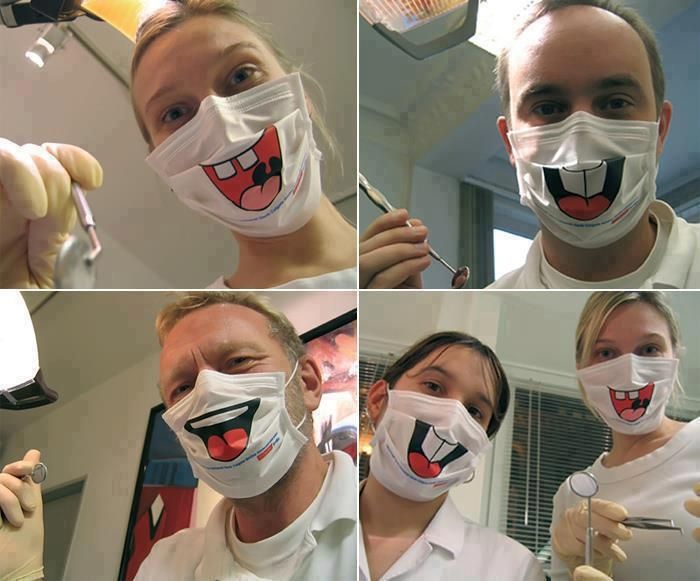 Don’t be afraid of their assurances, Uncle Doctor won’t hurt” have just the opposite effect. Parents should not make a whole event out of a visit to the doctor. It is important to instill in a child from childhood the understanding that taking care of dental health is a necessary and natural occupation.
Don’t be afraid of their assurances, Uncle Doctor won’t hurt” have just the opposite effect. Parents should not make a whole event out of a visit to the doctor. It is important to instill in a child from childhood the understanding that taking care of dental health is a necessary and natural occupation.
Why you need to stop being afraid of dentists
You need to accept the idea that only a qualified dentist can help you deal with problems in the oral cavity. There are no other ways in this case. Remember that dental diseases will not go away on their own. If they become severe, the health consequences can be very negative.
Specialists of the clinic "Stomatologist and I" will help you cope with fears and provide services for high-quality and painless treatment of diseases of the oral cavity and teeth. In addition, we have available aesthetic procedures: bite correction, alignment and whitening of teeth. You can get full information about the types of services, as well as make an appointment by phone or by filling out a special form on the website.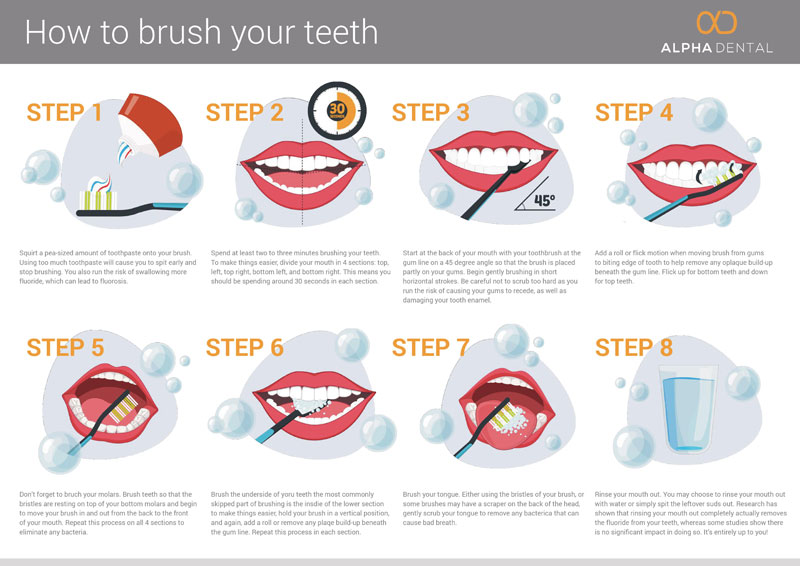
How to stop being afraid of the dentist - Ways to overcome dental phobia
If you have a toothache, bleeding gums or tooth enamel decay, the first thing that comes to mind is to make an appointment with a dentist. For some people, going to the dentist does not cause negative emotions, they perceive the treatment calmly. But according to statistics, in almost every second person, going to the dentist causes fear and fear. Such people come to terms with their pain, endure it, preferring to postpone the visit to the doctor on the back burner. Thus, provoking the development of dangerous diseases. You can not do it this way! Dental phobia needs to be dealt with. But how?, you ask. How to stop being afraid of the dentist? We will tell you about this now.
Causes of fear of the dentist
To stop being afraid of the dentist, you first need to understand the reasons that cause this fear. These reasons include:
- vivid childhood memories, when a visit to the dentist was accompanied by pain and the sounds of a drill;
- panic fear of just one type of dental instrument;
- fear of feeling pain, fear of the sight of blood
These main reasons can be supplemented with indirect ones: people are afraid of a medical error and expensive treatment, they are afraid to show their teeth to an unknown person and feel weak and helpless in the dental chair.
How to stop being afraid of the dentist
Dealing with the fear of going to the dentist is both simple and complex. Simple, because by identifying the root cause of fear, it is twice as easy to stop being afraid of the dentist. It is difficult, because it requires strong-willed effort and work on oneself on the part of the person himself.
So, all patients of our Dentistry on Shchelkovskaya (not far from the Shchelkovskaya metro station) are always aware of what and how they will be doing before starting treatment. The dentist talks about painkillers, technologies that do not injure teeth, as it used to be, about filling materials that last for decades with proper care.
Our patients are always aware of the cost of treatment and discuss with the doctor the possibility of paying in installments. Light pleasant music plays in our rooms, you will completely calm down and the treatment will pass without complications, fear and pain.
Take the first step towards defeating dental phobia, make an appointment with a dentist by calling 8 (495) 033-00-63 or using the online appointment form.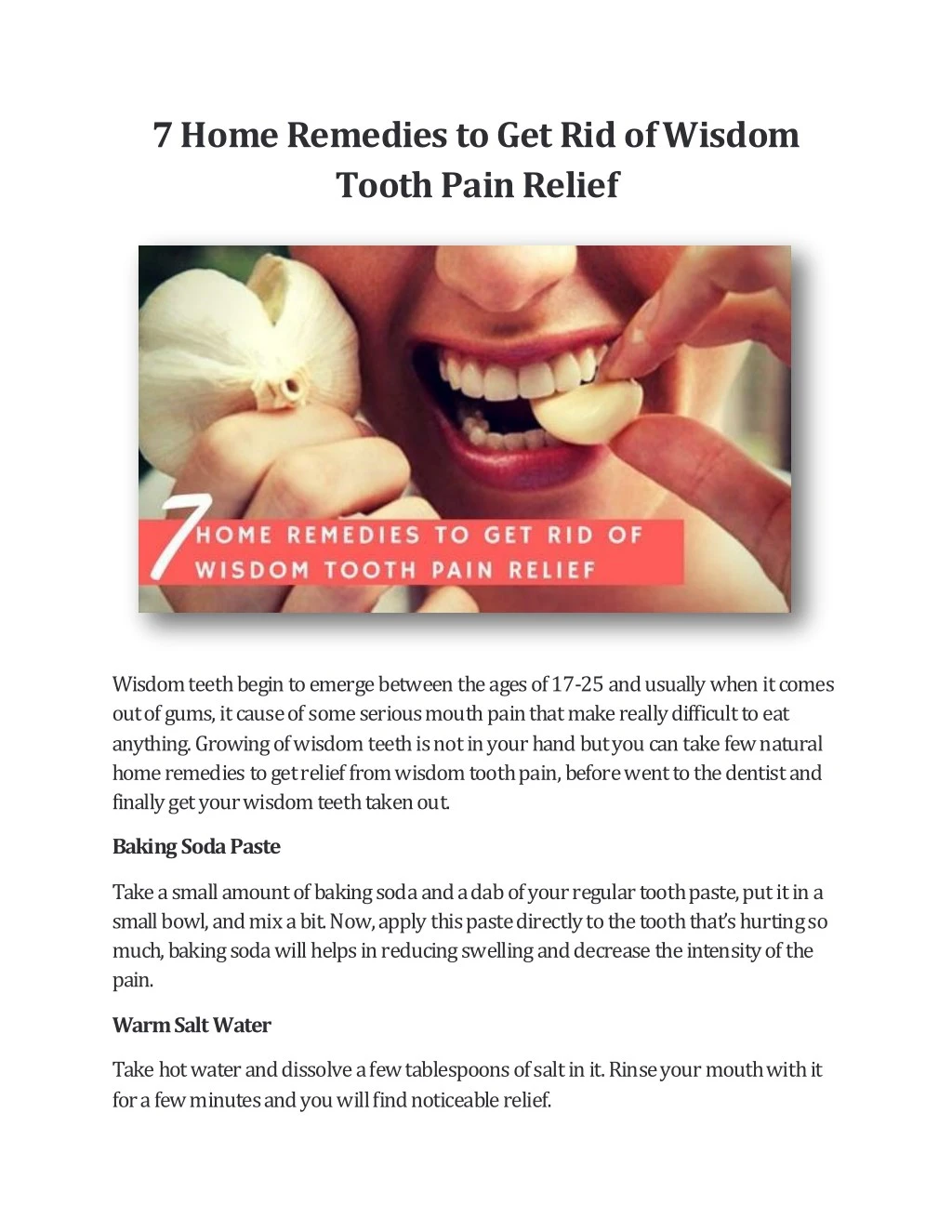
To stop being afraid of the dentist, it is necessary to become familiar with the state of modern dental science. This is a very effective technique - to know thoroughly what scares you. Then a visit to the doctor will no longer seem like something threatening and scary.
First, look at the local anesthetics that dentists use today. They begin to act almost immediately and absolutely dull the pain. Even if there is surgery, you will not feel it.
Secondly, the range of drugs and materials that are currently used in dentistry has expanded significantly. Today, it is absolutely safe to remove any pain effect from the treatment of teeth and gums - the doctor himself will prescribe the drug you need. For filling and treatment of teeth, modern materials are used, which are not rough, as before, but safe and comfortable.
The greatest fear of the dentist in patients is caused by procedures carried out in the cavity of the tooth. It is they who are associated in the minds of people with the terrible sound of a drill, with sharp and uncomfortable tools.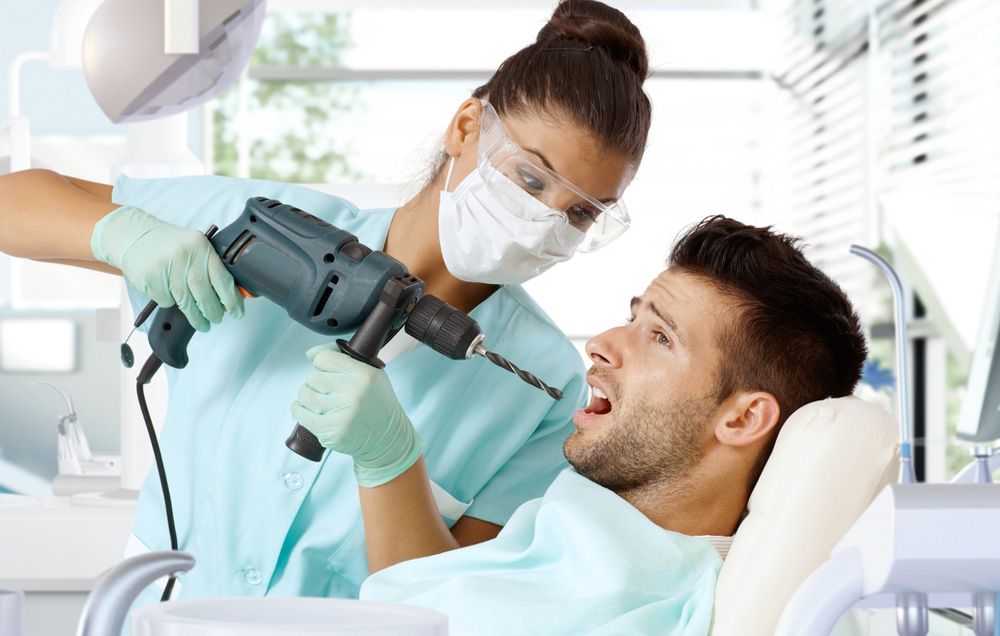 In fact, today in dentistry everything is quite different. Drills are no longer so noisy, and tools are constantly being improved and modernized. Throw away the stereotypes of a decade ago and feel free to make an appointment with the dentist.
In fact, today in dentistry everything is quite different. Drills are no longer so noisy, and tools are constantly being improved and modernized. Throw away the stereotypes of a decade ago and feel free to make an appointment with the dentist.
Overcoming the fear of the dentist
To stop being afraid of the dentist, it is necessary to understand that the doctor is not our enemy, but our friend, and that treatment is not torture, but the process of getting rid of what torments us.
If you do not have a regular doctor, try to choose a cozy clinic close to work or home for treatment. Read reviews, ask friends - maybe they will advise you on a suitable option. Surely among your friends there are those who were treated by our dentists! You can find out about our doctors on the Internet, not only on our website.
The dentist is your assistant and his goal is to help you heal. Do not doubt the competence of the dentist. The removal of a healthy tooth by a dentist is a fantasy story, this simply does not exist! On the contrary, modern dentistry offers so many different methods of treatment that the doctor will choose the right one for you.
Tell your doctor that you have a fear of the dentist and dental treatment. In medical practice, this is a standard case, and each doctor has his own approaches to "problem" patients. Someone does not stop joking to relieve tension in the patient, and in the company of such a doctor you feel light and joyful. Some doctors turn on calm background music, speak softly and delicately.
Dealing with the fear of the dentist
So, we have introduced you to the basic methods of how to stop being afraid of the dentist. Now your task is to make a decision to overcome this fear. Spend some time on what specifically scares you in the process of dental treatment - the type of instruments, the fear of the doctor's ill will, or the high cost of treatment?
Work with each specific fear, try to analyze it, and even better, present it in an exaggerated version. Imagine. That you came across an evil doctor who only does what he pours reproaches in your direction. Represented? Naturally, you immediately realized that such a doctor looks like a fairy-tale character.

